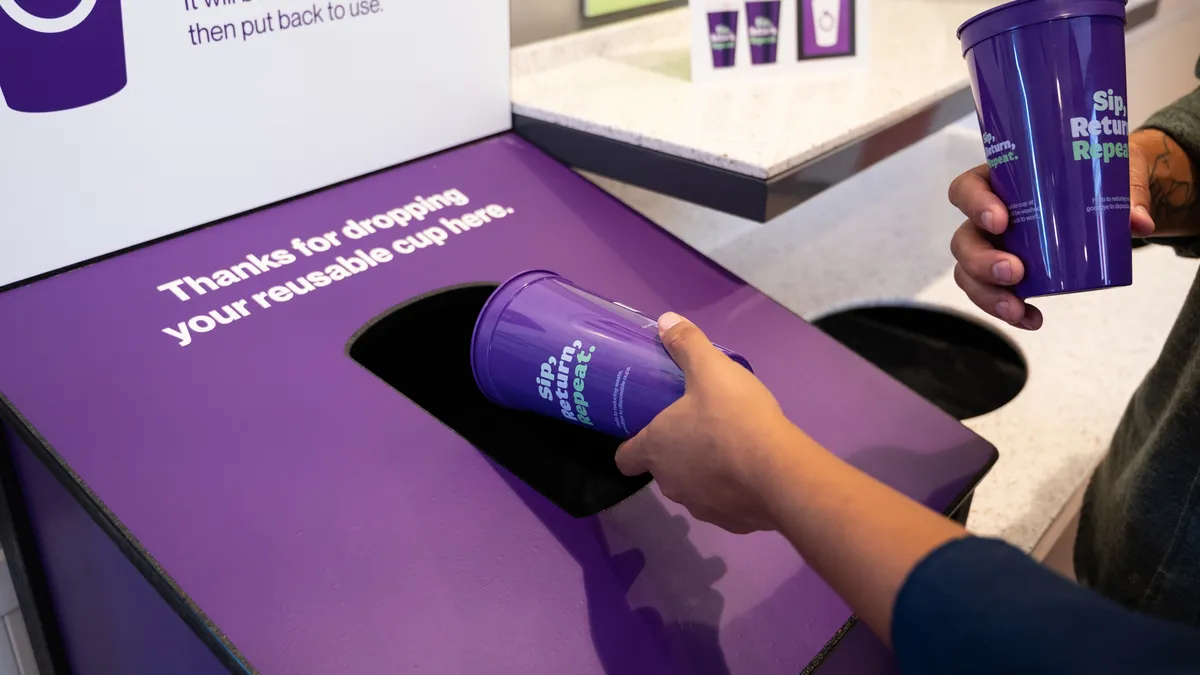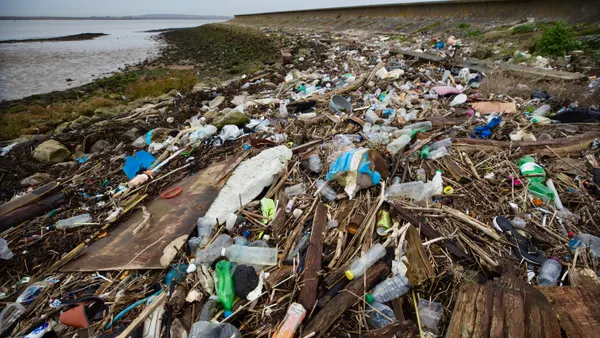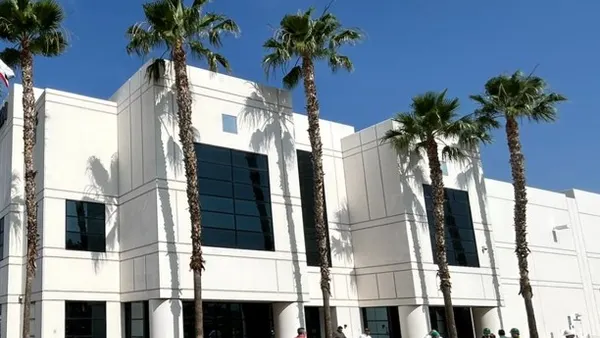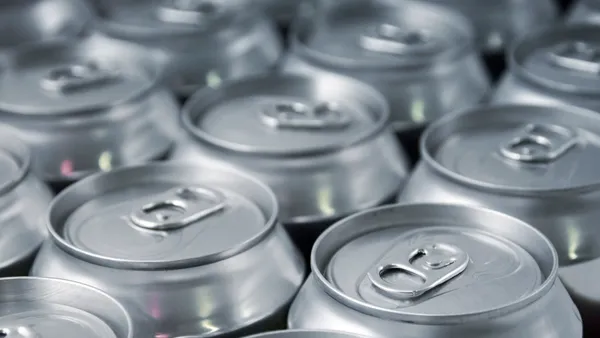Dive Brief:
- Digimarc is pitching its packaging watermarking technology, meant to aid recycling sortation, for widescale adoption. The push comes after years of piloting, particularly through Europe’s HolyGrail initiative. “We have a solution that's been tested that’s ready to scale,” said Judy Moon, vice president of market development and strategic sales, who leads Digimarc’s recycling initiative.
- This push to sell Digimarc Recycle will be a departure from a previous approach of contracting directly with brand owners or retailers. A new model has Digimarc seeking out fewer, larger contracts with central buyers: customers could be a government, NGO or producer responsibility organization that would license the technology and manage a program at scale.
- Digimarc plans to implement population-based pricing, such that the customer price would be less than $1 per capita annually. The license would include the software for the module and an unlimited number of SKUs or products within a jurisdiction.
Dive Insight:
Digimarc’s technology aims to improve the quality of the recycling process by applying covert digital watermarks to plastic packaging that can be identified by sorting equipment at recycling facilities. Those watermarks could reveal a variety of customizable information, such as packaging composition and whether a plastic is food-grade.
Partners on the HolyGrail 2.0 initiative in Europe, an effort to assess large-scale use of digital watermarks for accurate sortation of packaging waste, announced last fall that they were preparing for the first major market launch in France. Procter & Gamble was among the companies watermarking some of its packaging for the initiative.
Now, Digimarc is looking beyond Europe and HolyGrail. The company does not yet have customers for Digimarc Recycle, but Digimarc has previously scaled other watermarking products outside of recycling. For example, the company works with Walmart to watermark its private label products as part of a retail offering focused on front-of-store checkout efficiencies, Moon said.
For Digimarc Recycle, Moon reiterated that there have been early conversations about launching in Belgium, as well as in Canada.
Under a system that adopts Digimarc Recycle, products must get watermarked — which entails making an update to packaging artwork — and recycling facilities must have detection capabilities. Specifically, a hardware module, which entails lighting, high-definition camera and computer power capacities, could be added to a variety of sorting equipment belts, paired with Digimarc Recycle software to detect watermarks.
While Digimarc is seeking bigger contracts, Moon is hopeful that the approach could ultimately be a more expeditious path to widescale adoption versus “going door to door” to every brand owner or recycler. The customer should “really be an entity that has influence over the ecosystem,” Moon said. “That's why we think it makes so much more sense for a central entity to license this tech.”
While Digimarc has been focused on the European market in recent years, conversations are beginning in the U.S., Moon said. To date, California, Colorado, Maine and Oregon have passed extended producer responsibility for packaging laws.
“I think they could deploy something across multiple states. That would be ideal, but we're also open to speaking on a state level as well,” Moon said.











